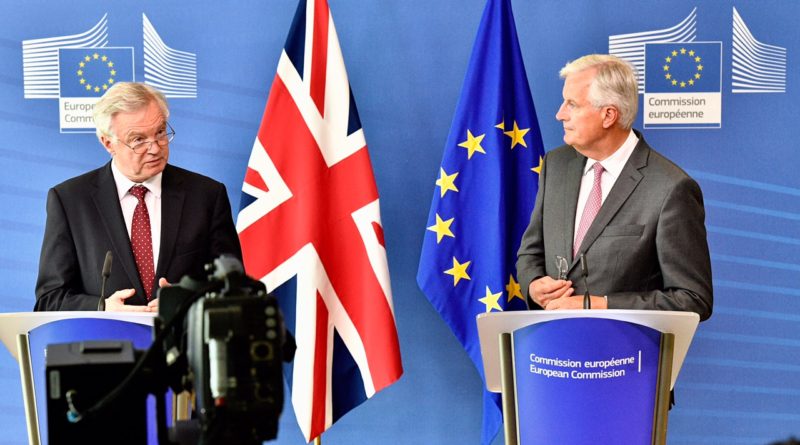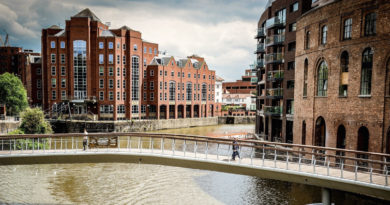How different Brexit approaches create friction on citizens’ rights
The third round of Brexit talks, from 28 to 31 August, ended with little progress. The discussion advanced on some aspects related to the status of EU citizens living in the UK and British elsewhere in the EU, but disagreement remained in important areas. This is partly due to the different approaches taken by the UK and the EU, as it emerged at a briefing organised under the Chatham House rule by the ECIT Foundation in Brussels.
With regard to citizens’ rights, the negotiating teams have published an update. This week the European parliament Brexit steering group commented on it. Here is a summary of what has been decided so far.
Where there has been progress
Compared to the previous round of talks (summary here), it has been clarified that EU nationals who live or used to live in the UK, and similarly for British elsewhere in Europe at the time of exit, will be able to aggregate across countries past and future pension contributions. UK pensions “exported” to EU countries will be regularly uprated, an option not available to people moving outside the EU.
EU citizens in the UK and Brits in the EU on exit day will also continue having access to healthcare in other EU countries using the European Health Insurance Card (EHIC).
Frontier workers (people who live in an EU country but work in another) have been included in the scope of the agreement, so they will maintain the right to work as normal.
Stuck on big issues
Disagreement remains, however, on other main issues. After Brexit, London wants to limit the right of family reunification for EU citizens in the UK, as it already does for non-EU nationals. It does not want to export child benefits and is asking EU citizens to re-apply for the newly created “settled status”, even if they have already obtained permanent residence. The EU Brexit team does not agree with such approach as it would backtrack on existing rights, and the European parliament has confirmed these are red lines for the EU.
On the other hand, the EU wants to guarantee the rights of British citizens only in the EU country where they currently reside. This means free movement will end for them in the EU27, something on which the European parliament has requested clarifications.
The recognition of professional qualifications is also complicated. Qualifications obtained in the EU28 before the UK withdrawal should be mutually recognised for people covered by the exit agreement. But the EU does not want to include in the deal diplomas in the course of being acquired and not completed before Brexit. In addition, for British residents in the EU, recognised qualifications would be tied to residency and to the recognising state. It would still be possible to have qualifications recognised, but this would happen under rules that apply to third countries (e.g. for people who studied in America), a more cumbersome process.
The provision of cross border services, i.e. the ability for UK residents or viceversa to provide consultancies and similar services across EU countries, are not covered by the exit deal as, according to the EU, this pertains to future trade relations.
The EU maintains that the rights to vote and stand as candidates in local and European elections should be lost by British nationals in Europe, because after Brexit they will no longer be EU citizens. It should be possible for individual countries to make different decisions in this respect and some already allow all residents to vote. However, the European parliament is pressing for a rethink on this point because “something as fundamental as the right to vote in local elections should not in principle be taken away from those who previously were able to exercise it.”
Further, the EU wants children of people covered by the agreement and born after Brexit to be entitled to the same rights as family members, while the UK considers them as individual rights holders. Some analysts see the EU position as a way to provide certainty on children’s status, others as a risk that rights will be lost at the coming of age.
Regarding enforcement, the UK wants to transpose the final deal into national law before making it operational, while the EU wants to give it direct effect so that citizens can refer to the withdrawal agreement in domestic courts. Also unsolved is the dispute on the European Court of Justice and on who should supervise the implementation of the deal.
Different approaches
The friction on many of these points is not necessarily on the substance, but on different approaches taken by the UK and the EU. The UK wants to “take back control” of its laws and not create privileges for EU nationals in the UK in relation to the Brits (e.g. with regard to family reunification).
On its part, the EU Commission Brexit team adheres strictly to the negotiation mandate received by EU countries. The mandate provides for two negotiating phases: the first aiming at a smooth exit agreement and the second at a future trade agreement. Only when sufficient progress is made on the first, will the EU move to the second. The possibility for British tourists to use the health card in EU countries, the mutual recognition of future professional qualifications or the continued provision of cross border services are seen as part of the future deal so the EU won’t discuss them now. It is possible they will be agreed later, but this will depend on whether, for example, the UK will stay in the single market.
Secondly, the goal of the EU is to protect life choices people already made, not what they may choose to do in the future.
In relation to this, the EU wants to adhere to existing EU laws and legal concepts avoiding the creation of new ones. For example, based on current EU directives, permanent residence is lost after two years of absence from the country where it has been obtained. The EU is keen to carry this rule in the withdrawal agreement. The UK is prepared to be flexible for citizens “with strong ties” with the UK and would hope the same could be for British residents in other EU countries. But the concept of “strong ties” does not exist in EU law and has never been interpreted in EU courts.
Finally, the EU wants an agreement that covers equally the rights of both EU nationals living in the UK and British in the EU. Related to this is the request that the deal is directly enforceable in domestic courts. The principle is that there will be imbalances otherwise and agreed rights might even be worthless if citizens had to wait for transposition in national laws, as demanded by the UK.
There was confidence at the briefing in Brussels that a good agreement will be reached on citizens’ rights. But the real stumbling block that could lead to a ‘no Brexit deal’ is the financial settlement, the money the UK should pay to the EU budget for commitments already made for programmes, projects and staff salaries.
The next rounds of talks will be in the weeks commencing 18 September and 9 October, but it has been reported that the British government is keen to intensify discussions. So far there has been no breakthrough in the three areas (citizens’ rights, Irish border and financial settlement) expected to deliver “sufficient progress” by the European Council of 19-20 October. At that time leaders of EU countries will decide whether to move to stage two and start discussing a future trade relation with the UK.
Claudia Delpero © all rights reserved.
Photo © European Union, 2017. Source: EC – Audiovisual Service, Jennifer Jacquemart.
Published on 7 September and revised on 9 September 2017.





